At the end of the 36th session of the Human Rights Council, two different resolutions have been adopted for Burundi. An unprecedented situation.
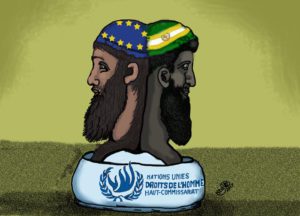
The Human Rights Council where both resolutions were adopted.
The two resolutions adopted made waves. First there was this resolution proposed by the African group, a mechanism that was triggered 24 hours before the Geneva resolutions. The African group, supported by Bujumbura, has proposed a mechanism that honors the Burundian justice. Indeed, a commission of three experts will come in the country to back Burundian justice in its investigations. At the end of her work, it will draw up a list of the crimes and the alleged perpetrators. These experts will then report back to the government and it will be up to the Burundian courts to decide.
The mechanism didn’t really go down well with the European Union, which decided to maintain its draft resolution. It therefore put a lighter mechanism to the vote of the Council of Geneva which came back on the main ideas of the report of Fatsah Ouguergouz’s commission: crimes against humanity, targeted sanctions and request for referral to the International Criminal Court. However, the draft resolution put to the vote on 29 September does not go back on anything of the kind. It just mentioned the extension of the mandate of Ouguergouz’s commission for one year. “A relief to win African votes,” explained a European diplomat. It was success for the EU as it was able to rally certain countries that earlier supported Bujumbura. The Commission of Inquiry will therefore have one more year to continue its documentation on human rights violations committed in Burundi. It had already pointed out targeted assassinations, torture, enforced disappearances, rape, and so on. The report points an accusing finger at authorities of the State, particularly the President of the Republic.
The ICC can initiate investigations on its own initiative
A worksite is awaiting the Human Rights Council which will have to set up a new commission of three experts. Then, it will be a question of defining their specifications before sending them to Burundi. At the same time, it will also be a question of sending the other commission, chaired by Fatsah Ouguergouz, to a direction unknown so far, but not in Burundi. “The doors of Burundi will remain closed for him,” said an authority on the spot.
Bujumbura won a battle: the request for referral to the ICC is not mentioned in either of the two resolutions. It still holds its breath and watches the clock turn. It remains two good weeks to see if the ICC is not going to initiate its prosecutions in Burundi. As a reminder, The ICC can act independently of Geneva and start investigations. Burundi announced its withdrawal from the Rome Statute on 27 October 2016. Its effective withdrawal will take place on 27 October.
Reactions
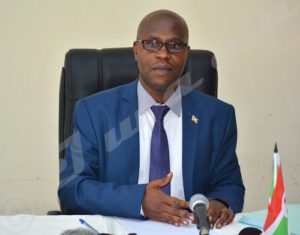 Martin Nivyabandi: “Burundi will not work with Ouguergouz’s commission.”
Martin Nivyabandi: “Burundi will not work with Ouguergouz’s commission.”
The Minister for Human Rights assures that in principle, the first resolution adopted implies the removal of the second. According to Martin Nivyabandi, the stubbornness of the European Union made it possible that Burundi has two resolutions. To that end, he assures that the government will collaborate with the resolution proposed by the African group “because it recognizes the sovereignty of the country and the competence of its jurisdictions. A resolution that respects the Burundian people. “On the other hand, Burundi is unlikely to collaborate with the commission of inquiry chaired by Fatsah Ouguergouz. “That commission emanates from an EU resolution that was rejected by Burundi. It has a pre-jurisdictional mission for the ICC, assuming that Burundian justice is unable to do its job, which is unacceptable for Burundi. ”
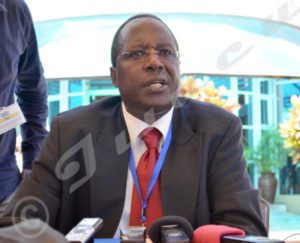 Charles Nditije: “Bujumbura will not cooperate with the 3 experts.”
Charles Nditije: “Bujumbura will not cooperate with the 3 experts.”
The president of the opposition platform Cnared deplores the negative solidarity of the African group. It secretly introduced a resolution aimed at blocking the one previously presented by the EU in order to protect the criminal regime of Bujumbura. “Fortunately, the EU resolution was adopted as was the African one. “He assures that Ouguergouz’s commission will continue to investigate further cases and demonstrate once again to the world that Bujumbura regime is responsible for crimes against humanity. At the same time, the other commission will realize that its initiators have been deceived greatly because Bujumbura regime will not cooperate and allow these experts to know the truth about the gravity and extent of its crimes. “We are pleased that there is no link between the work of the two commissions and that of the ICC which can decide at any time to initiate an investigation.” He very much hopes that this inquiry will be opened before 27 October.
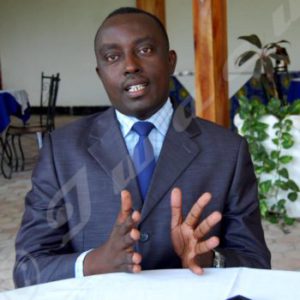 Pacifique Nininahazwe: “The EU resolution is more important because of its prestige and independence.”
Pacifique Nininahazwe: “The EU resolution is more important because of its prestige and independence.”
The human rights activist welcomes the adoption of the two resolutions on Burundi. The first resolution would have been too weak if there were not the second one proposed by the EU. This weakness resides in the fact that it has too much confidence in this sudden and surprising will of the Burundian authorities to cooperate. According to Pacifique Nininahazwe, the second resolution is the most important because of its prestige and independence. The second mechanism will now be reinforced by the first with the presence of experts on the ground, if the collaboration with the authorities is maintained. “I hope that the Office of the High Commissioner for Human Rights will better articulate the two mechanisms.” He asserts that the two resolutions are putting pressure on Bujumbura. But it lacks on the side of the Security Counci,l measures to protect the Burundian people. “Furthermore, we are waiting for the ICC to initiate the investigation in order to punish perpetrators of despicable crimes. “Unfortunately we continue to witness two sides of the UN: That of the human rights council which is active and notes the crimes in Burundi, and that of the Security Council which continues to witness the scenes of the killing of Burundians instead of protecting them.
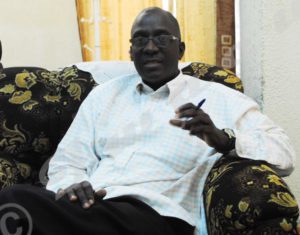 Pierre Claver Kazihise: “The resolution of the African group is the most important.”
Pierre Claver Kazihise: “The resolution of the African group is the most important.”
The coordinator of the Civil Society Citizenship (Socic) says it is strange that two resolutions have been adopted.
However, what is important is that there should be a resolution supported by the Burundian government. For Pierre Claver Kazihise, the resolution proposed by the African group will prevail over the other. He believes that sending the three experts on the Burundian soil to investigate with the authorities on the ground will allow a clear improvement in the human rights situation in Burundi. Unlike the commission chaired by Ouguergouz, which is the result of the EU approach, “which has rather dubious objectives that will lead to nothing.”
Analysis
Bujumbura at the post-truth time
The African resolution calls for three experts to be sent to Burundi to “cooperate with the Burundian authorities.” Objective: “To establish the truth and ensure that perpetrators of deplorable crimes are brought before the judicial authorities of Burundi.”
The 23 votes in favor preferred to turn a blind eye – by “African solidarity” – while the experts of the Commission of Inquiry into Burundi had mentioned “the lack of will of the Burundian authorities to fight impunity” and “the lack of independence of national justice”, hence their recommendation to the ICC to investigate crimes against humanity in Burundi.
“We are deeply disappointed that the Council has adopted a weak resolution that does not reflect the gravity of the situation,” said the representative of the NGO Human Rights Watch in Geneva, John Fisher, on Thursday (September 28th). He stressed, however, that these three new experts could collaborate with the Commission of Inquiry if its mandate is renewed the following day. But what about their room for maneuver? Will this new UN mission add value to the Ouguergouz I and II report?
A complement under close scrutiny
At the announcement of its adoption, Bujumbura rubbed its hands, already anticipating a final report painting a non-overwhelming picture of the human rights situation. If the Government of Nkurunziza cooperates in the collection of information and determination of the facts relating to human rights violations, how to guarantee unrestricted access to the alleged victims, or to prevent the discrediting of this new UN mission to Burundi? Should this happen, how to create the conditions for liberation speech for those who incriminate elements of the defense and security forces or Imbonerakure? Especially if the experts are perceived as servants on duty – on behalf of “David” this time.
In view of the jubilant reaction of the chief of the presidential communication, Willy Nyamitwe, on Twitter, Bujumbura enters the post-truth. The important thing for “David” is not that what is said about human rights situation is true, but rather that it be believed.
Written by Agnès Ndirubusa and Guibert Mbonimpa. Translated by Pierre Emmanuel Ngendakumana

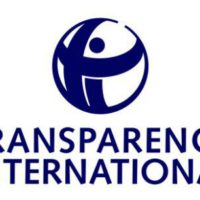
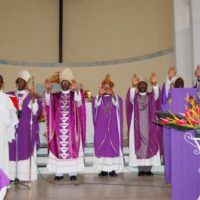
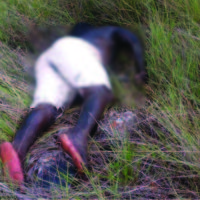
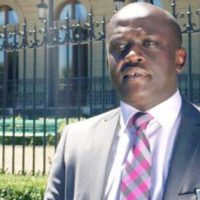
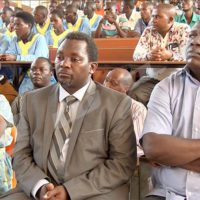













 IWACU Open Data
IWACU Open Data

